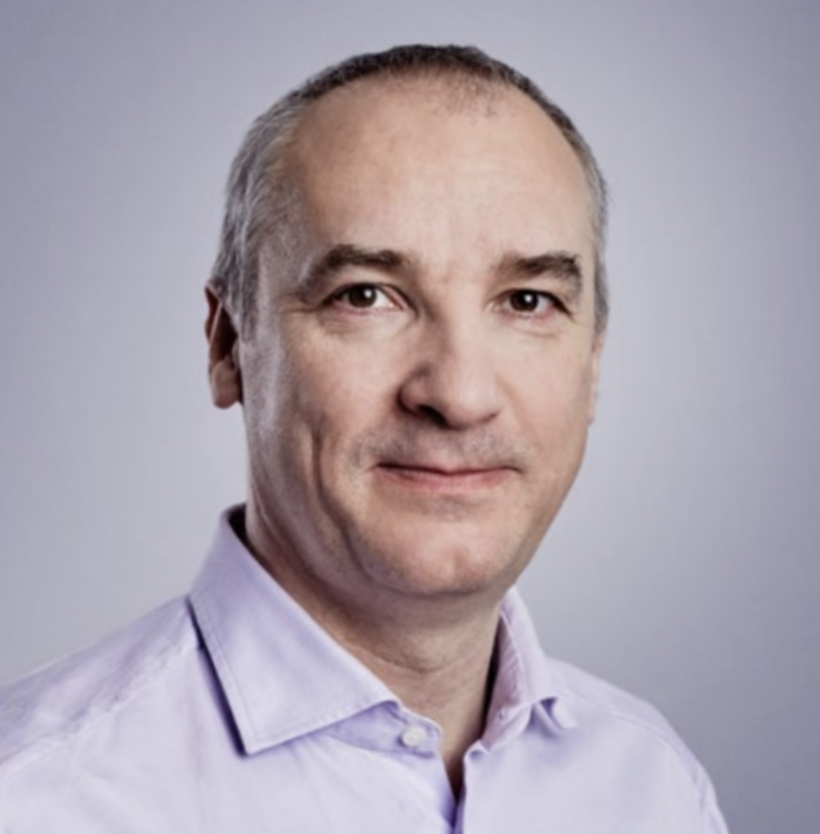No longer the new kid on the block

When Allwyn was announced as the winner of the fourth UK National Lottery licence in March 2022, it was assumed there would be some degree of fallout. After all, Camelot had held the UK National Lottery licence unrivalled for the previous 28 years.
But the aftermath was more ferocious than first thought. Days after the announcement, Camelot launched a High Court challenge against the decision, with Camelot chief executive Nigel Railton saying the GB Gambling Commission had got the decision “badly wrong”.
Although the legal challenge was subsequently dropped last September, the sense of disbelief hung around. Despite the disruption to the preparations, Allwyn chief executive Robert Chvátal says the business is fully prepared to take on the licence. The challenges have ultimately been eased, with Allwyn acquiring Camelot’s UK operations and Chvátal stepping in as interim CEO to ensure plans go without a hitch.
“We definitely felt very proud, and humbled, when we learned last March that we had prevailed in the process,” says Chvátal. “I strongly believe that we were able to bring the best of Europe to bear in our bid, and highlight opportunities to make the UK National Lottery bigger, better and safer.”
So what will Allwyn’s tenure consist of? According to Chvátal, digitalisation – with an equal balance between retail and online lottery – and a change-up in the lottery’s portfolio.

“Going forward, it has to be a journey of portfolio innovation, a journey of further digitalisation – not only in the online space but also in retail,” he explains. “Retail is really important to us and we’re committed to growing this channel, helping the brick and mortar world move with the digital times.”
Spearheading the transition
Player protection was a key component of Allwyn’s bid for the fourth National Lottery licence and will take a front seat in the company’s plans. This will feed directly into the National Lottery’s Good Causes scheme, Chvátal adds.
“It’s also a journey of robust player protection because that’s what the lottery is or should be,” he continues. “We don’t want to be dependent on a few high rollers.
“We want to be as broad as possible, and have a very broad customer base, which plays either regularly or occasionally and ultimately contributes the maximum possible returns to good causes in the UK.”

But Allwyn is not aiming to reinvent the wheel. Chvátal says its plan centres around improving practices that are already in place.
“Our first priority is to make a seamless transition on day one between the third licence and the fourth licence,” he explains.
“Then the emphasis will shift to innovations in product portfolio. But, ultimately, what we put in our bid for the transition and beyond is a gradual build-up of what is already there and further developing it.”
Operation transformation
While Chvátal is confident in laying the groundwork for Allwyn’s newest tenure, he doesn’t take its position for granted – particularly in Europe where Allwyn has a large presence.
“We strongly believe that having an exclusive licence is not something that you should take for granted, or become complacent about,” he says. “No monopoly or exclusive position in the world will guarantee you success or relevance with consumers.”
Even if Allwyn is granted a monopoly – like it has with OPAP in Greece – Chvátal sees strength in humility.
“We basically work with our teams as if we do not have a monopoly, because there is a broader gaming entertainment space for consumers to freely choose from.”
Nonetheless, Chvátal turns back to the UK, where he recognises the role that the National Lottery plays in improving day-to-day life.
“What I feel in the UK – what is especially advantageous compared to other markets – is that there is a very finite, very concrete set of beneficiaries in the UK, ranging from culture, sports, heritage and social,” he continues. “I think this makes the link between what the lottery does, both for the consumers and for society, much more palpable, much more visible.”
The Land of the Free
Although Allwyn has undoubtedly seen success elsewhere through its operations in Greece and Cyprus (OPAP), Austria (Casinos Austria), Italy (LottoItalia) and the Czech Republic (Sazka), US plans have yet to take off.
Last August it announced its intention to list on the New York Stock Exchange (NYSE) through a deal with special purpose acquisition company Cohn Robbins Holdings Corp. This fell through the following month, but that’s not to say plans to import its expertise stateside are dead.
“The US has always been an interesting market for Allwyn to enter,” Chvátal explains. “Firstly, although US lotteries are generating big revenues, they are not necessarily the fastest in adopting online or ilotteries.
“Secondly, we wanted to enter the US because we believe there are opportunities to make the case for greater liberalisation of lotteries.”
“When, not if”
Chvátal says market conditions played a big part in the shelving of its listing plans.
“For Allwyn, the listing was always a very logical next step,” he explains. “However, in the end we decided not to do it because financial and capital markets were very volatile.
“The idea of listing was basically about reconfirming [Allwyn] as the operator of choice for lotteries vis-à-vis the individual regulators and governments that we are also publicly listed with.
“The question for Allwyn when it comes to listing is when, not if.”
Earlier this month Allwyn completed its acquisition of Camelot’s US business, Camelot Lottery Solutions, following a deal that was finalised in January. So what does this mean for Allwyn’s presence in the US, considering it has now taken over a business that runs the Illinois state lottery?
“Camelot US was an opportunity that arose at the same time as the opportunity to acquire Camelot in the UK,” says Chvátal. “It was almost like a double deal, because it was an immediate entry into the US market for us, with the risk that we have to extend the licence in the state of Illinois.”
Facing forward
Regardless of the challenges Allwyn has faced, Chvátal is excited about the future outlook.
“At the moment, we are at the stage where we want to consolidate our position in individual markets,” he explains. “This is definitely the case in the UK, where we need to focus on the transition.
“So there might be a pause when it comes to the new flags on the map, because we believe our biggest priority is to master the transition in the UK and master the entrance into the US, where we are taking over the Illinois lottery and developing it.”
Ultimately Allwyn aspires to be number one, he says. The number one operator of choice, the number one enactor of player protection schemes and the number one UK National Lottery facilitator.
With a ten-year tenure for the latter beginning in 2024, Allwyn has plenty of time to prove itself as top of the pack.
